 Social & Institutional Determinants of Vulnerability & Resilience to Climate Hazards in the Sahel
Social & Institutional Determinants of Vulnerability & Resilience to Climate Hazards in the Sahel
2022-2025
Objective|Funding|Publications|Research Team
Objective
Global climate change is predicted to have significant impacts on the West African Sahel. The countries of the region are among the least developed on earth, particularly susceptible to political instability and economic crisis, and in the past decade have been subject to intense pressures given weakened state structures and the resulting parasitic violent extremist movements. Yet, perhaps surprisingly, the region also shows continued sources of resilience among its diverse populations, drawing largely on historical models of adapting to uncertainty.
While many have posited causal links between climate change, resource competition and conflict in the region, scholarly efforts to examine this nexus have proven largely inconclusive. The open question of how climate change will impact governments and societies in the Sahel presents the point of departure for this project. We build on the findings that a direct causal link with given outcomes—such as violence—is not evident, and on the observation that there is significant variation in the degree of vulnerability or resilience in different locales. We suggest that effective research on the relationship between climate variability and the relative vulnerability or resilience of Sahelian societies and institutions requires both social and spatial disaggregation and comparative analyses along multiple dimensions and scales.
We seek to better understand how the hazards, risks—and at times the opportunities—of climate change are perceived and understood by social actors at a variety of scales. The research questions proceed from the premise that the behaviors and choices that will shape the degree of resilience or vulnerability to any given situation are mediated by local understandings of hazards and of the resources and institutions available to manage risk at each level. The experience of climate is always local, and adaptation or other responses are determined locally. We thus seek to understand how perceptions of climate impacts, effects, and hazards at different scales and in different sectors inform individual behavioral calculations, debates on social structures and authority, and decisions about the shape of both formal and informal institutions.
Beyond questions about the Sahel itself, we hope to contribute to the emerging literature examining the broader phenomenon of global variation in strategic climate resilience.
The research team is intentionally designed to bring together an interdisciplinary group of scholars with long experience in the region with two others with expertise in large-scale mapping and modeling of human interactions with the environment. Using a diverse set of methodological tools, the core of the project will be based on gathering original data on the social and institutional determinants of vulnerability and resilience in three domains: governance and political stability, economic systems and livelihoods, and health and nutrition. We will carry out intensive fieldwork in four Sahelian countries, at the macro (national) level in capital cities, as well as at the meso (local authorities and institutions) and micro (household) level in select semi-rural agglomerations.
Funding
This project is generously supported by a grant from the Minerva Initiative. It was one was one of seventeen grants selected from 220 applications in the 2021-22 Minerva competition. The Minerva Research Initiative, launched by the US Secretary of Defense in 2008, supports university-based social science research aimed at improving basic understanding of the social, cultural, behavioral, and political forces that shape regions of the world of strategic importance to the U.S.
Publications and Presentations
- Minerva Program Review Presentation August 2024, Daniel Acosta
- Acosta, D. et al. 2024. Climate change and health in the Sahel: a systematic review. Royal Society Open Science 11(7).
Research Team
Principle Investigator: Leonardo A. Villalón, Professor of African Politics; Co-PIs: Sarah McKune (Environmental and Global Health & African Studies) and Renata Serra (African Studies). Other contributors: Gregory Kiker ( Department of Agricultural and Biological Engineering), and Steven Radil, (United States Air Force Academy).
Our UF research team (from left to right): Isabelle Walther-Duc, Dr. Renata Serra, Dr. Sarah McKune, Dr. Greg Kiker, Dr. Steve Radil, Dr. Leonardo Villalón.
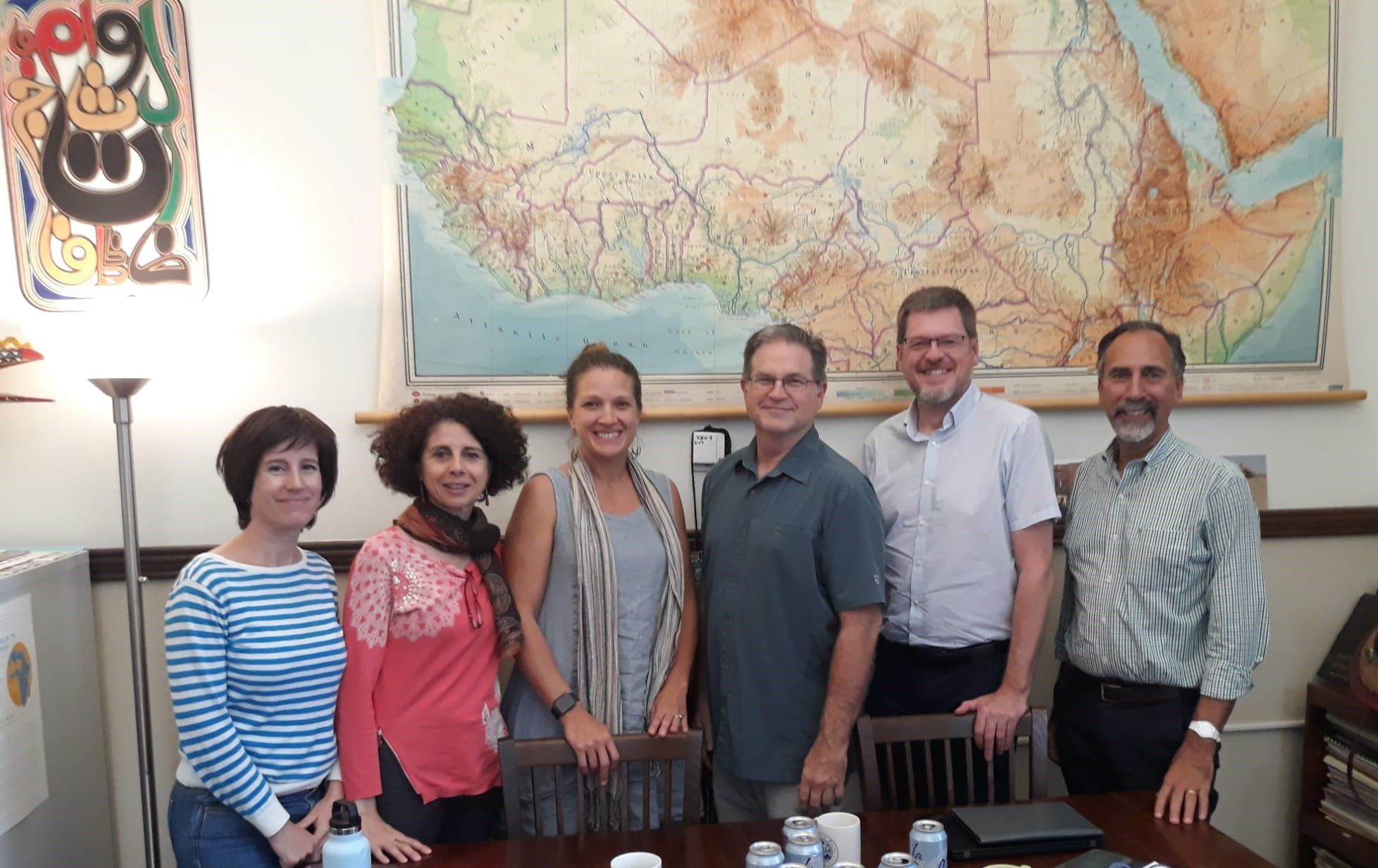
The central part of the empirical research effort of our project will be developed in the second year of the project. We formalized partnership with four local institutional research partners, and in consultation with them we identified our five specific field sites: Linguère and Kaffrine in Senegal; Kiffa in Mauritania; Zinder in Niger; Massakory in Chad.

In January 2024, we were in Dakar to launch the fieldwork of our project in partnership with our colleagues and their institutions from the region: Dr. Yamingué Betinbaye from CRASH (Chad), Dr. Mousapha Taleb Heidi from CEROS (Mauritania), Dr. Nana Issaley and Dr. Malam Souley Bassirou from LASDEL (Niger), Dr. Ndeye Sokhna Cissé and Dr. Moustapha Sèye from LARTES (Senegal).
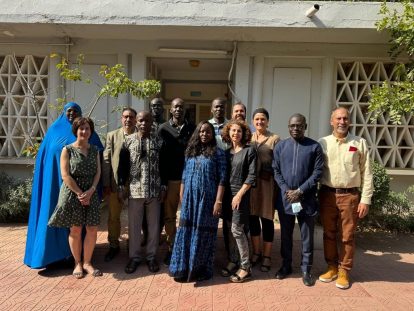
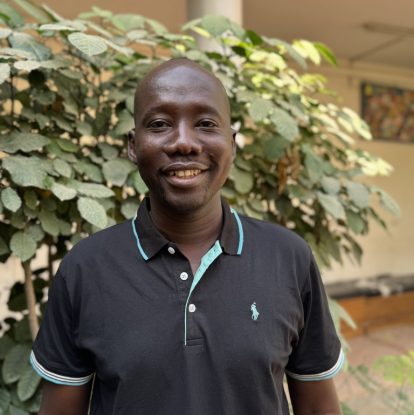 Yamingué BetinbayeEmail | Dr. Yamingué Bétinbaye holds a doctorate in urban and political geography from the University of Ngaoundéré (Cameroon) and a master's degree in information and communication sciences from the University of N'Djaména (Chad). He is a senior researcher and analyst at the Center for Research in Anthropology and Human Sciences (CRASH) based in N'Djaména. He also teaches at the University of N'Djaména and the University of Moundou (Chad). He regularly conducts research on security and political dynamics in Chad, and as such is CRASH's focal point for monitoring the political transition process underway in this Sahelian country. CRASH is a Chadian non-profit organization, founded in 2005 and officially recognized in September 2007. It is a multidisciplinary research laboratory based in N'Djaména, focusing on research for development. CRASH was born of a partnership between several national and international researchers, to advance scientific research in Chad. It focuses on several research themes, including natural resources, security, health, governance, and democracy. |
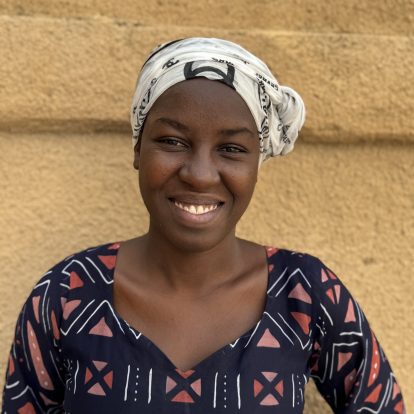 Elisabeth Babouh Tih-Kwada | Babouh Tih-Kwada Elisabeth holds a degree in sociology from the University of N’Djamena, Chad, and is currently writing a research master’s thesis on the sociology of development. She is a junior research fellow at Centre de Recherche en Anthropologie et Sciences Humaines (CRASH), and patriciates as a research assistant on projects related to political dynamics and the political transition in Chad. With her work on the Minerva project, she is particularly interested in issue related to health and nutrition. |
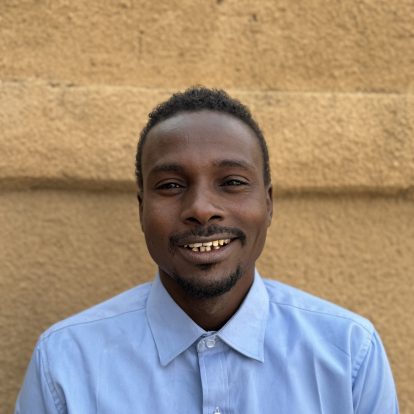 Abderahim Moussa | Abderahim Moussa holds a Master’s degree in Anthropology from the University of N’Djaména (Chad). He is a junior research fellow at the Centre de Recherche en Anthropologie et Sciences Humaines (CRASH), where he has participated in a number of research projects on themes including religion (laïcité) and the role of traditional authorities. He is increasingly interested in the life conditions of rural Sahelian populations, and is preparing a doctoral project linked to the Minerva research, focused on the vulnerabilities of family agropastoral livelihoods in the Chadian Sahel |
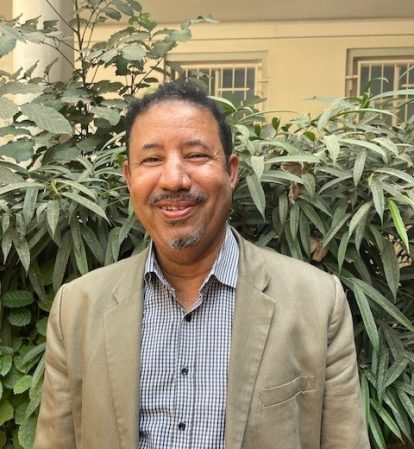 Moustapha Taleb HeidiEmail | Dr. Moustapha Taleb Heidi, is a sociologist and obtained a joint Doctorate in 2008 from the University Cocody of Abidjan (Republic of Côte d’Ivoire) and the University of Basel (Switzerland). He is currently affiliated with the Center of Research on Western Sahara (CEROS), based in Nouakchott. He has worked for several years as a researcher on development issues in the nomadic world of the African Sahara (Mauritania, Mali and Chad) and West Africa. Together with the “One Health” research group, he was awarded the Swiss Trandisciplinarity Award in 2004. From 2009 to 2012, Mr. Heidi worked for the FAO as a national expert in Mauritania and, from 2013 to 2017, taught Sociology/Anthropology at the University of Nouakchott at undergraduate and Master's level in “Territories and Migrations”. Dr. Heidi has produced several publications on current dynamics in West Africa. One of his recent works focused on artisanal gold exploration in Mauritania. CEROS is a centre for studies and research on Sahara's western region based in Nouakchott. |
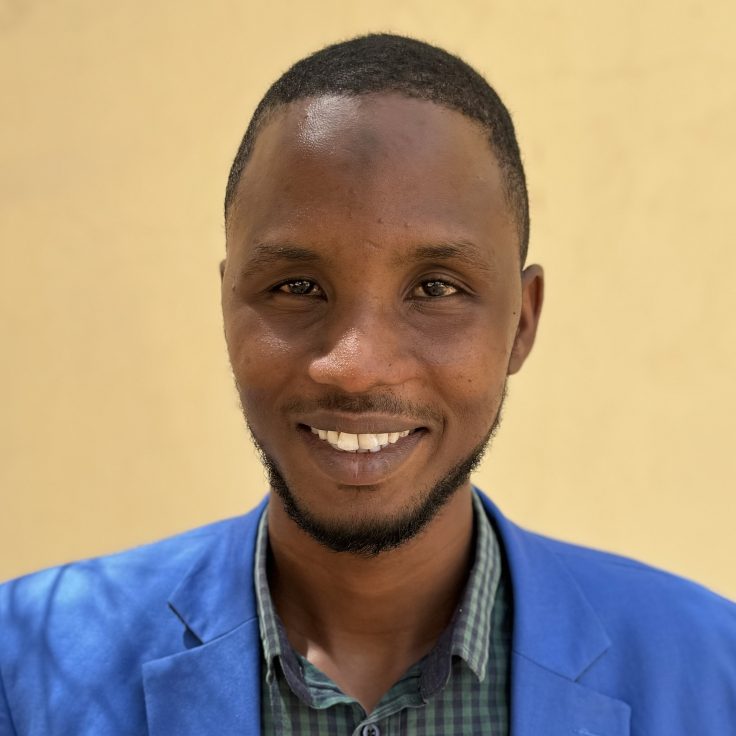 Ahmed ould Demba Wared | Ahmed ould Demba Wared received a bachelor’s degree in Geography from the University of Nouakchott (Mauritania) in 2021. He is a researcher in the Faculty of Letters and Human Sciences at the same university, and currently a Master’s student in Geography. His thesis in progress is on the theme of “The Impact of Climate Change on Water Resources in the Wilaya of the Asaba, Mauritania.” |
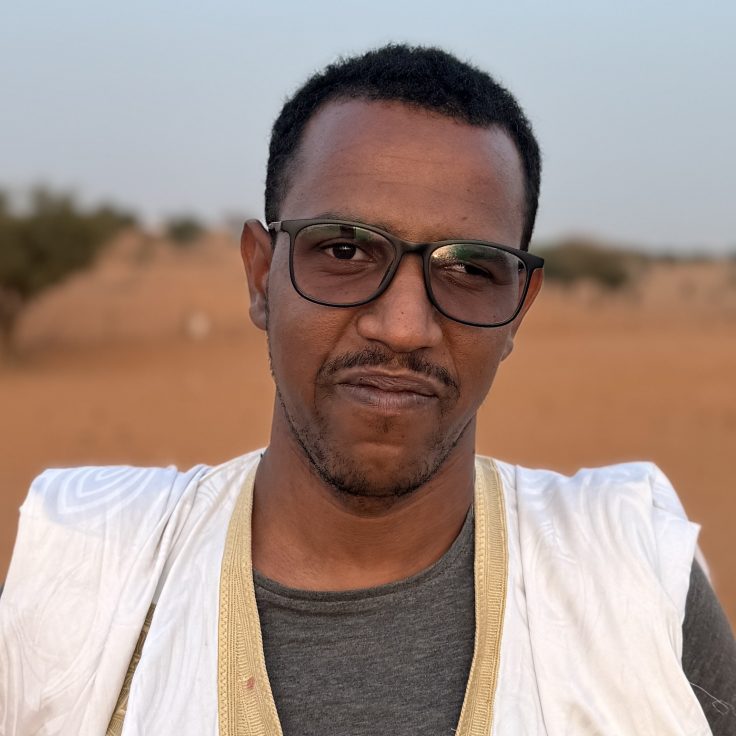 Mohamed Mahfoudh Salem Nah | Mohamed Mahfoudh Salem Nah is currently a student in the Master’s program on “Power and Society in the Sahelo-Saharan Space” in the Department of History and Civilization of the Faculty of Letters and Human Sciences, University of Nouakchott. He also holds a bachelor’s degree in History from the same department. Mohamed is an active member of student unions and has participated in many student activities and charitable tasks. His research is focused on the history of climate change and migration the Tagant and Asaba regions of Mauritania. |
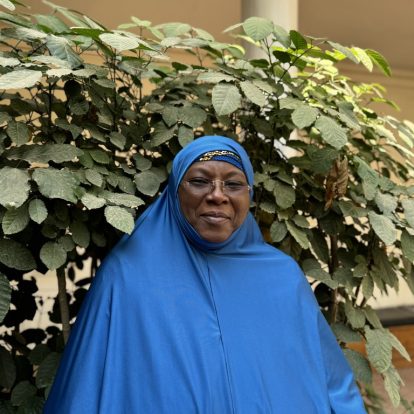 Nana Aichatou IssaleyEmail | Dr.Issaley Nana Aichatou is a socio-anthropologist who has been affiliated with the Laboratoire d’Etudes et de Recherches sur les Dynamiques Sociales et le Développement Local (LASDEL) since its founding in 2001. She completed her Ph.D. at the Ecole des Hautes Etudes en Sciences Sociales EHESS in Marseille, France, in 2012. Her academic interests include merchandising of natural resources, pastoralism, food insecurity, health, family planning, forced migrations, and gender studies. She is a researcher and lecturer affiliated with the University André Salifou of Zinder in Niger. LASDEL is a Nigerien and Beninese NGO founded in 2001 in Niamey. The centre of research specializes in qualitative methods (field survey, immersion, free interviews, observations, case studies) and quantitative methods. |
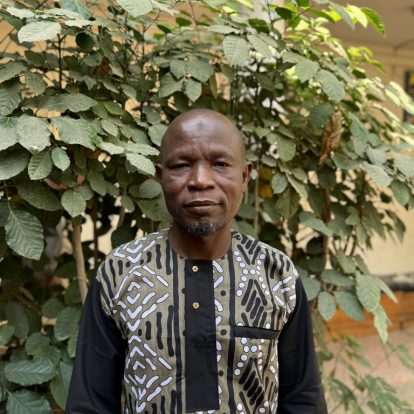 Bassirou Malam SouleyEmail | Dr. Malam Souley Bassirou, researcher and lecturer in human geography is affiliated with the Department of Geography of the University André Salifou of Zinder in Niger. Bassirou’s research and academic interests focus on migration, pastoralism, climate change, and geographic information systems (GIS). Bassirou completed his Ph.D. within the Laboratoire d’Etudes et de Recherches sur les Dynamiques Sociales et le Développement Local (LASDEL) from 2008 to 2012 with the Zinder Breeding Program (EMS). Bassirou is an associate researcher at the LASDEL and is involved in different research programs such as MIGEDVI, EMZ, and Social Inclusion of Youth. LASDEL is a Nigerien and Beninese NGO founded in 2001 in Niamey. The centre of research specializes in qualitative methods (field survey, immersion, free interviews, observations, case studies) and quantitative methods. |
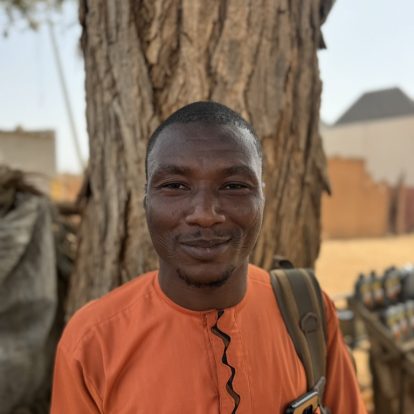 Ousmane Moussa Nababa | Ousmane Moussa Nababa is a doctoral student at the Université André Salifou de Zinder (UASZ) in Niger. At UASZ he is affiliated with a laboratory on Societies, Territory and the Environment (Labo STE: Laboratoire Sociétés, Territoire, et Environnement), where he is a member of the research team on Territory, Mobility and Logistics. He is also the doctoral student representative to the Scientific and Pedagogic Council of the UASZ Doctoral School. His doctoral thesis examines the relationship between migration, climate change, and local development in eastern Niger, specifically in the Koutous region, north of the Department of Gouré |
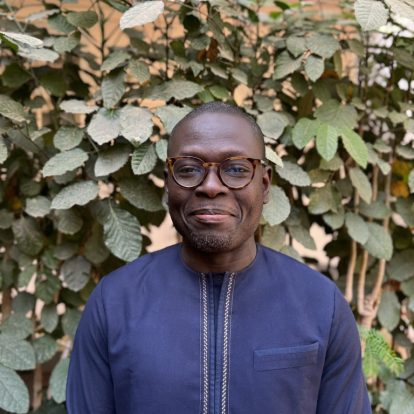 Moustapha SèyeEmail | Dr. Moustapha Sèye, is a socio-anthropologist and researcher affiliated with the Laboratory of Research on Economic and Social Changes LARTES-IFAN. He specializes in research on the environment and sustainable development. He has a particular interest in entrepreneurship, environmental governance, and the sociology of food. He has worked extensively on issues relating to food and nutrition security, cash transfers, and resilience at the national level and in the sub-region. He has extensive experience working with academic and development institutions. Moustapha Sèye also has wide-ranging experience in evaluating development policies and strategies. He was awarded the prize for the best thesis in Senegal's doctoral schools by the National Academy of Sciences and Techniques of Senegal in 2017. Moustapha Sèye has published scientific articles in peer-reviewed and A-rank journals. The LARTES-IFAN of Cheikh Anta Diop University was founded in the 1990s following collaboration with the Institut de Recherche et Développement (IRD) in Paris. The research center capitalizes on its experience in education, poverty analysis, populations and interdisciplinary expertise in development studies, governance and entrepreneurship. The center's mission is to conduct fundamental and applied research. |
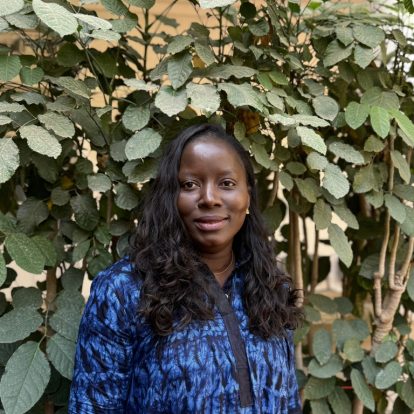 Ndeye Sokhna CisséEmail | Dr. Ndeye Sokhna Cissé is affiliated with the LARTES-IFAN as a socio-economist. She has a particular interest in issues relating to nutrition, health, education and poverty, as well as in measuring the impact of innovations. Sokhna's academic training and extensive field research have enabled her to become a specialist in both quantitative and qualitative studies in the field of development research. She has (co)published her research in several journals (Journal of Experimental Agriculture International, Maternal and Child Nutrition, African Journal of Food Science, Magazine votre santé). |
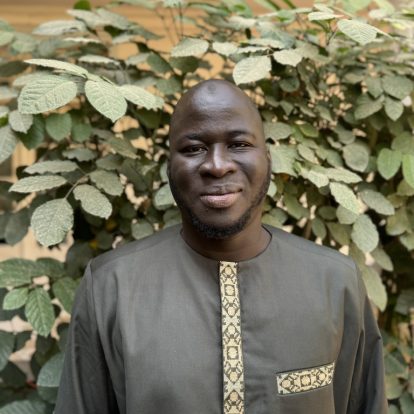 Dame SeckEmail | Dame Seck is currently a research assistant with Dr. Sokna Cissé at the LARTES-IFAN. He is a geographer, statistician, and population dynamics expert. Since 2012, Dame has participated in about 50 studies addressing a diversity of topics such as education, health, economy, demography, farming & breeding, and environment. |
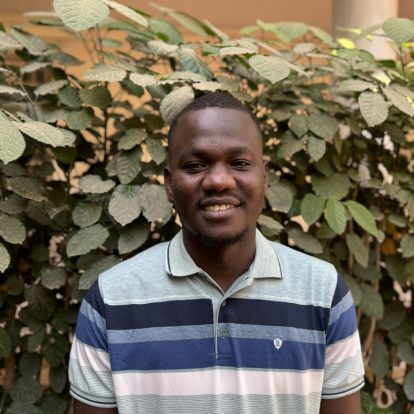 Cheikh Ahmadou Bamba SeyeEmail | Cheikh Ahmadou Bamba Seye is a doctoral student and research assistant at the LARTES-IFAN. His work focuses on food & nutrition and hygiene. Cheick Ahmadou’s PhD dissertation examines Resource management of livelihoods and the persistence of malnutrition in Podor and Linguere. He has participated in studies on health and environment for NGOs such as Action Against Hunger or the IRD. |
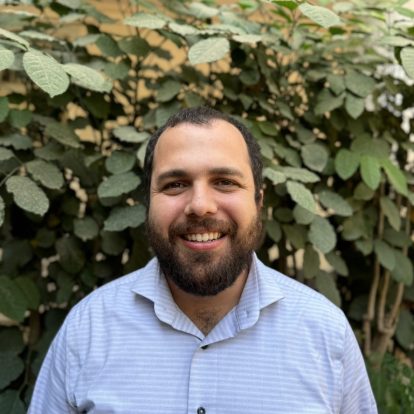 Daniel AcostaEmail - UF page | Daniel Acosta is a doctoral student in Public Health with a focus on One Health at the Department of Environmental and Global Health at the University of Florida. He has done research on gender and intersectionality in the context of livestock vaccine value chains with pastoralist communities. He also did an internship at the Sahel and West Africa Club Secretariat at the Organization for Economic Cooperation and Development (OECD) where his work was focused on climate change policies. He is interested in the impacts of climate change on health, through a One Health lens (human, animal, and environmental health). Daniel is completing the fieldwork of his PhD dissertation research in Mauritania and Senegal . |